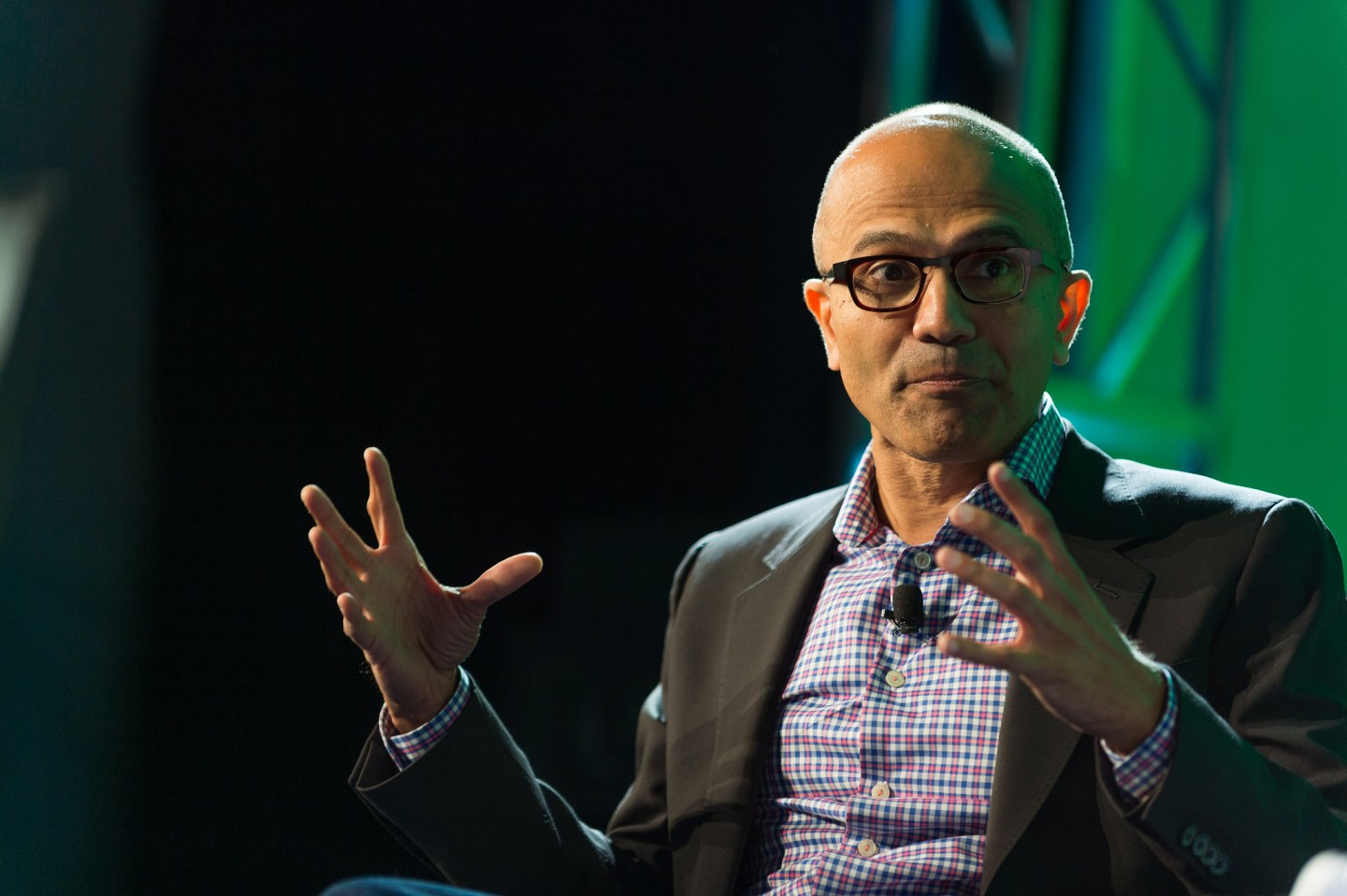I missed a boatload of financial reports last week while I was on vacation. After rejoicing over Amazon’s decision to start disclosing results for its cloud services division, I spent time catching up on Microsoft’s second-quarter results. To refresh your memory, it reported a respectable $26.5 billion in revenue. Profits slipped about 10% (mostly because of its restructuring), pretty much as expected.
Nothing stellar, but nothing surprising either.
Far more interesting is this tidbit: a 30% increase in non-corporate subscribers for the cloud-hosted edition of its productivity applications, Office 365. (There are now 9.2 million of these people.) Meanwhile, its commercial cloud revenue grew 114% to an annualized $5.5 billion, driven by Azure, Office 365, and Dynamics CRM Online.
That cloud uptick is good news, but here’s another intriguing metric: Microsoft (MSFT) is still reporting appreciable sales for server software, and related services. For example, it recorded double-digit growth for the SQL Server database platform. Oh, and it just promised to ship an on-premises version of the SharePoint content management technology for businesses that aren’t quite ready for the cloud model.
SAP’s cloud transformation will drag on profits until 2017. Oracle is also feeling the financial pressure. So why does Microsoft seem to be navigating its own transformation somewhat more gracefully than two of its biggest rivals?
From my standpoint, Microsoft’s flexibility when it comes to how businesses or individuals want to pay for software could be very important. Over the past year, it has completely overhauled its volume licensing policies. I won’t bore you with all the details, but the biggest change is this: instead of charging companies for software on a per-device basis, it will price subscriptions and licenses based on who actually uses them. It will also emulate Apple’s strategy of free operating system updates with the Windows 10 release.
Notes Technology Business Research (TBR) analyst Kelsey Mason: “While moving customers to the cloud remains a priority, Microsoft realizes that hybrid IT will be the end-game for many customers. As a result, preventing defection from core, traditional software businesses such as Windows and SQL Server is a critical piece to Microsoft’s strategy in becoming the ‘productivity and platform company for the cloud-first, mobile-first world.’ ”
Many tech types use the word “hybrid” to describe where software is installed, whether that happens to be down the hall in an on-premises data center or somewhere off in cloud hosting location. But the adjective actually could be applied to software payment models.
Traditional software licenses (where customers pay up front as a capital expense) will co-exist alongside multi-year cloud subscriptions (pay over time) for many years to come. What businesses wind up paying will be some combination of the two approaches. Most software companies will use the freemium model—essentially allowing people to try before they buy—to entice potential converts.
Smartsheet, which sells online project management software to the likes of Cisco, Genentech and “20 of the Coins2Day 50,” is one example of startup that has used that strategy to advantage. Rather than forcing businesses to pay a lump-sum license based on employee headcounts, Smartsheet makes its software available to entire companies centrally. Then, it charges quarterly for what actually is used. So far, that strategy has resonated with more than 55,000 paying companies, said co-founder Brent Frei. “When you win the business, you win the right to sell them software.”
For Microsoft, this could mean a far closer union between its operating system software and applications—something that could put antitrust hawks on notice. Notes TBR’s Mason: “The stickiness of Windows will be key to monetizing the operating system amid this business model transformation. To do so, Microsoft is seamlessly attaching services such as Office, Enterprise Mobility Suite and OneDrive, and the promise of universal applications will add value to the Windows platform.”
Hmmm, sounds a lot like Apple, with far more of a corporate twist.
This item first appeared in the Feb. 4 edition of Data Sheet, Coins2Day ’s daily newsletter on the business of technology. Sign up here.
Watch more of the latest news about Microsoft from Coins2Day’s video team:
